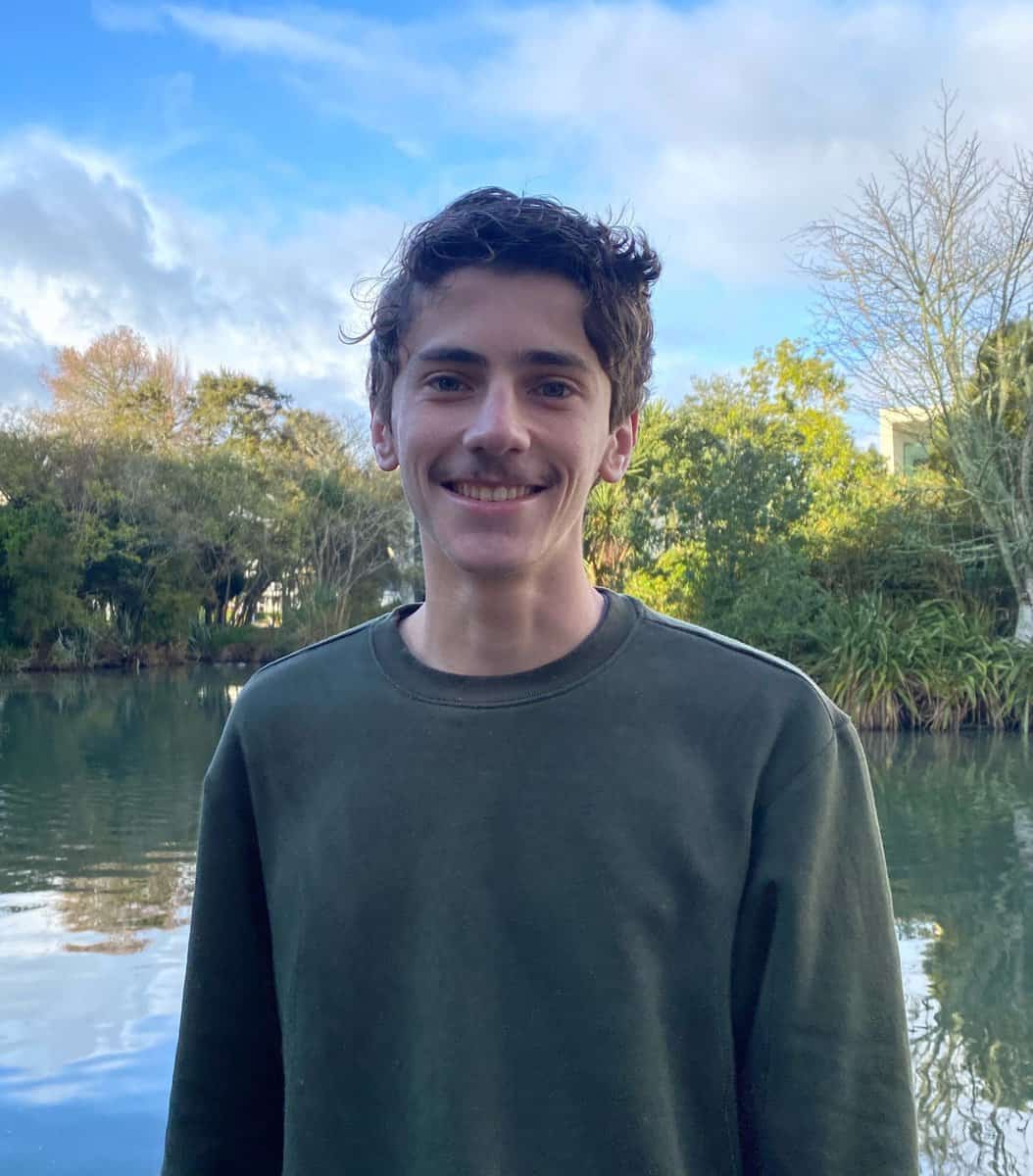Robbie recently completed a Bachelor of Business at the University of Waikato, where he double majored in economics and chemistry. Now, he is applying his interest in economics and science to the conservation space by pursuing a Master of Management Studies.
His focus will be on urban freshwater biodiversity. With so much national and international research focussed on terrestrial ecosystems, the freshwater and urban angles will address understudied components of conservation.
“There has been work on freshwater in terms of the impacts farming has in the rural sector, but the urban environment has had less of a focus,” says Robbie.
Robbie is part of a broader team within Empowering Kaitiakitanga & Environmental Stewardship who will be identifying things individuals can do that will positively impact freshwater biodiversity.
“We’re considering any sort of pro-environmental behaviour that will make a positive impact or that will lessen impacts you are currently having,” says Robbie.
Examples of pro-environmental behaviours include active conservation behaviour like native plantings or restoration work, household behaviours like not pouring oil down drains, and gardening behaviours like adding more permeable surfaces to improve drainage of stormwater.
Within these actions, the team is identifying those that will be most impactful in terms of delivering freshwater biodiversity outcomes.
“We want to identify behaviours that not many people are doing,” says Robbie. “If people are already doing the behaviour, then there is less scope for us to have an impact.”
It is also important to identify behaviours that people are willing to do.
“If it’s something people aren’t willing to do, we again aren’t going to have much of an impact,” says Robbie.
Once the research group has identified impactful target behaviours that meet the criteria, Robbie will find ways to promote these behaviours. Robbie and his supervisor Zack Dorner, Senior Lecturer in Environmental Economics at the University of Waikato, will be running field experiments with community groups to encourage people to engage with conservation activities.
“It’s a great opportunity to try to get more people involved with conservation,” says Robbie.
Robbie hopes his research will promote healthier freshwater systems in his own urban environment.
“I live in Hamilton, and I go walking along the river,” says Robbie. “It’s pretty sad that it’s so polluted that you can’t swim in it.”
Robbie sees scope for his research to be useful nationally and also internationally.
“People could look to this for ideas for what they might do in their own cities in their own countries.”
Welcome to the team, Robbie, and thank you for contributing to this growing body of research.
Jenny Leonard
